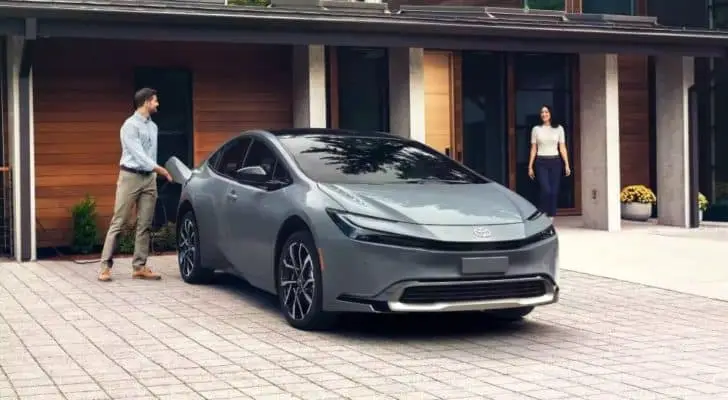Rise by Six: Your Daily Dose of Inspiration
Explore insights and stories that elevate your day.
Fuel Efficiency Meets Style: Drive into the Future
Discover the perfect blend of fuel efficiency and stylish design. Drive into the future today and elevate your journey!
Top 5 Stylish Fuel-Efficient Cars of 2023
In 2023, the automotive market has embraced a new wave of stylish fuel-efficient cars that combine aesthetics with sustainability. As drivers become more eco-conscious, manufacturers have risen to the occasion, offering vehicles that not only look good but also perform exceptionally well when it comes to fuel economy. Below, we explore the top 5 stylish fuel-efficient cars this year that are turning heads on the road.
- Toyota Prius - The classic hybrid continues to impress with its sleek design and impressive MPG ratings, making it a staple for eco-friendly drivers.
- Honda Insight - With a modern exterior and spacious interior, the Insight offers both style and efficiency, achieving excellent fuel economy.
- Mazda MX-30 - This stylish electric SUV features a unique design and eco-friendly performance, making it a standout choice for the environmentally-conscious.
- Kia Niro - The Niro combines versatility with a stylish exterior, proving that practicality and elegance can go hand in hand.
- Hyundai Ioniq 5 - Blending sophistication with cutting-edge technology, the Ioniq 5 is a game changer that showcases the future of fuel-efficient driving.

How to Maximize Fuel Efficiency Without Sacrificing Style
Maximizing fuel efficiency while maintaining your vehicle's style is a practical goal that many drivers aspire to achieve. One effective strategy is to maintain proper tire pressure. Under-inflated tires can lead to increased rolling resistance, which not only reduces fuel efficiency but can also impact the overall look of your car. Regularly check your tire pressure and keep them inflated to the manufacturer’s recommended levels. Additionally, consider investing in aerodynamic enhancements such as a stylish rear spoiler or streamlined roof racks; these modifications can improve fuel efficiency by reducing drag without compromising your vehicle's aesthetic appeal.
Another way to enhance fuel efficiency without sacrificing style is by adopting smart driving habits. For example, smooth acceleration and gradual braking can significantly improve your vehicle's gas mileage. Using cruise control on highways can also help maintain a constant speed, which is more fuel-efficient. Moreover, ensure that your vehicle's engine is well-maintained: timely oil changes and air filter replacements can optimize performance and enhance fuel efficiency. Finally, consider stylish yet functional lightweight wheels that not only elevate your vehicle's appearance but also contribute to better mileage through reduced weight.
Is Your Car's Fuel Efficiency Impacted by Its Design?
The design of a car plays a crucial role in its fuel efficiency. Factors such as weight, aerodynamics, and engine configuration all contribute to how effectively a vehicle uses fuel. For instance, a car with a streamlined shape can reduce drag, allowing it to glide through the air with less resistance. Conversely, a boxy or bulky design may lead to increased fuel consumption, as the engine must work harder to overcome the drag. Therefore, when considering a vehicle's overall efficiency, consumers should take into account its design attributes.
Moreover, the materials used in a car's construction can also influence fuel efficiency. Lighter materials, like aluminum and advanced composites, can drastically reduce the overall weight of the vehicle, allowing for better mileage. Additionally, design innovations such as hybrid systems and energy-efficient engines are increasingly incorporated into modern cars, enhancing their ability to conserve fuel. In summary, both the aesthetic and functional aspects of a car's design are integral to its fuel economy, making it essential for buyers to consider these factors when evaluating their vehicle choices.